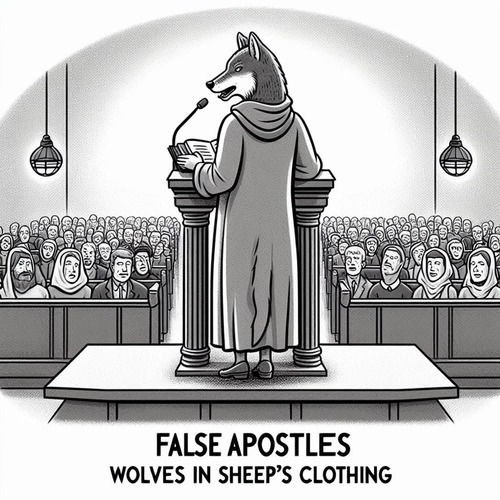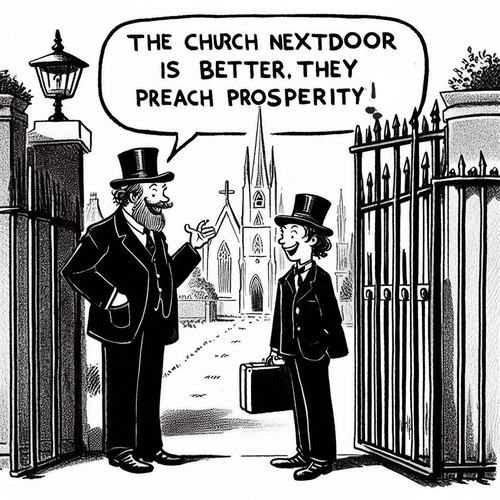Did Jesus Have a Wife? Separating Lies from Truth
**Editor’s Note: This post is part of our series, ‘Satan’s Lies: Common Deceptions in the Church Today’…
In bookstores, movie theatres and internet forums, a persistent question keeps surfacing: Was Jesus married? Did He have a wife, perhaps even children? This isn’t mere curiosity—it’s part of a broader assault on biblical truth that seeks to remake Jesus into something more palatable to modern sensibilities.
The question itself reveals a deeper problem. When we’re no longer satisfied with what Scripture clearly teaches, we become vulnerable to every wind of speculation and conspiracy theory that comes our way.
DID JESUS HAVE A WIFE? WHAT SCRIPTURE ACTUALLY SAYS
The Bible’s testimony is remarkably clear through what it says—and what it doesn’t say. Across four detailed Gospel accounts, numerous epistles, and the entire New Testament narrative, there is not a single reference to Jesus having a wife. The silence is deafening.
- Consider how thoroughly the Gospels document Jesus’ relationships. We know about His mother Mary, His brothers and sisters, His close friends like Martha, Mary, and Lazarus, and His inner circle of disciples. The Gospel writers record even brief encounters with women throughout His ministry. Yet nowhere—not once—is there any mention of a wife.
- More telling still are Jesus’ own words about singleness. In Matthew 19, when discussing divorce, Jesus speaks of those who “choose to live like eunuchs for the sake of the kingdom of heaven” (verse 12). He presents singleness not as a deficiency, but as a deliberate choice for undivided service to God.
- At the cross, Jesus entrusts His mother to the care of John the disciple (John 19:26-27). If Jesus had been married, this responsibility would naturally have fallen to His wife. Instead, He makes provision for His mother through His beloved disciple—a clear indication of His unmarried state.
- The Apostle Paul later holds up singleness as following Christ’s example, writing that “it is good for them to stay unmarried, as I do” (1 Corinthians 7:8). Paul’s teaching only makes sense if Jesus Himself had remained single.
THE HISTORICAL CONTEXT
In first-century Jewish culture, marriage was indeed the norm for rabbis and religious teachers. This is precisely why Jesus’ singleness would have been notable—and why the Gospel writers would have mentioned a wife if one existed. Jewish marriage customs were well-documented, and wedding celebrations were significant community events. A marriage involving someone of Jesus’ prominence would not have gone unrecorded.
The early church fathers, those closest to the apostolic age, unanimously testified to Jesus’ celibacy. These weren’t men pushing an anti-marriage agenda—many were married themselves. They simply recorded what had been consistently taught and believed from the beginning.
ADDRESSING THE MODERN LIES
Where do these marriage theories actually come from? Let’s examine each source and why it fails to stand up to scrutiny:
The Gospel of Philip (3rd-4th century)
- Written 200-300 years after Christ by Gnostic heretics, not eyewitnesses
- Contains the famous “companion” reference that marriage theorists cite
- The damaged manuscript is missing key words, making interpretation speculative
- Even if complete, “companion” in Gnostic literature often meant spiritual associate, not spouse
- Contradicts the canonical Gospels on numerous historical and theological points
The Gospel of Mary (2nd century)
- Another late Gnostic text with no apostolic connection or eyewitness testimony
- Promotes Gnostic theology the early church universally rejected as heretical
- Contains no actual marriage claims—only suggestions of special relationship
- Written by groups seeking to elevate feminine divine principles, not record history
- Lacks any corroboration from contemporary or earlier sources
Modern Fiction and Conspiracy Theories
- Dan Brown’s The Da Vinci Code openly admits to being fiction, yet many treat it as fact
- Holy Blood, Holy Grail and similar books rely on forged medieval documents (proven fraudulent)
- These theories require massive cover-ups across centuries involving thousands of people
- They ignore basic historical methodology and demand acceptance without evidence
- Popular appeal doesn’t equal historical accuracy—entertainment isn’t scholarship
Feminist and New Age Reinterpretations
- Often driven by agenda to remake Jesus into modern sensibilities rather than historical research
- Seek to diminish Jesus’ unique divine nature by making Him “more human”
- Typically reject biblical authority while accepting much later, contradictory sources
- Ignore that early Christianity actually elevated women’s status more than the surrounding cultures did
- Project contemporary values onto ancient texts without proper historical context
WHY THIS MATTERS THEOLOGICALLY
Jesus’ celibacy wasn’t accidental—it was essential to His mission. As the sinless Son of God, He came to offer Himself as the perfect sacrifice for sin. His undivided devotion to this calling required complete focus.
But there’s a deeper theological reality at work: Jesus already had a bride He came to woo, win, and prepare for Himself—the Church. Scripture presents Jesus as the bridegroom of the Church (Ephesians 5:25-32), the one who “loved the church and gave himself up for her to make her holy, cleansing her by the washing with water through the word, and to present her to himself as a radiant church, without stain or wrinkle or any other blemish.”
This isn’t mere metaphorical language—it describes the central purpose of Christ’s incarnation and redemptive work. He came as the divine Bridegroom to pursue His beloved bride, the Church, paying the ultimate bride-price through His death on the cross. His covenant relationship is with His people collectively, spanning all of history and eternity.
An earthly marriage would have fundamentally contradicted this spiritual reality. How could the eternal Bridegroom of the Church also be the temporal husband of one individual woman? His exclusive devotion to the Church as His bride was not only appropriate but necessary for the accomplishment of redemption.
This doesn’t diminish marriage—Scripture clearly presents marriage as God’s good gift (Genesis 2:18) and uses it as the very picture of Christ’s love for His Church. But it does affirm that singleness, too, is a valid and sometimes necessary calling. Jesus’ celibacy served His unique redemptive purpose as the Bridegroom who came to claim His eternal bride.
THE DANGER OF SPECULATION
At its heart, the question “Did Jesus have a wife?” reveals our discomfort with what Scripture actually teaches. We live in a culture that cannot imagine fulfilled life without romantic love and sexual expression. The idea that Jesus might have lived differently challenges our assumptions about what constitutes a complete human experience.
But this is precisely where we must trust God’s Word over our cultural instincts. When we start adding to Scripture what we think should be there, we’re walking the same path as every heretical movement in church history.
The motive behind many of these theories isn’t innocent curiosity—it’s an attempt to humanise Jesus in ways that make His divine claims less threatening. A married Jesus seems more “normal,” more like us, and therefore less likely to make absolute demands on our lives.
CONCLUSION: DID JESUS HAVE A WIFE?
The truth is simple: Jesus remained celibate throughout His earthly life. This isn’t because marriage is wrong, but because His calling required complete devotion. The Scripture’s testimony is clear, consistent, and compelling.
When culture offers us alternative versions of Jesus—whether married, merely human, or anything other than what Scripture presents—we must respond with the same words Jesus used to combat Satan’s temptations: “It is written.”
The Jesus of Scripture is sufficient. He doesn’t need our improvements, speculations, or cultural updates. He needs our faith, our obedience, and our proclamation of the truth as it has always been revealed.
DID JESUS HAVE A WIFE? RELATED FAQs
What did Reformed theologians say about Jesus’ marital status? John Calvin explicitly affirmed Jesus’ celibacy in his commentaries, noting Christ’s undivided devotion to His redemptive mission necessitated singleness. Reformed theologians like John Owen and Charles Hodge similarly emphasised Jesus’ celibacy demonstrated His complete consecration to God’s purposes. They viewed attempts to marry Jesus off as undermining His unique calling and perfect obedience to the Father.
- If marriage is good and God-ordained, why didn’t Jesus marry? While marriage is indeed God’s good design for humanity in general, Jesus had a specific, time-limited mission that required total focus. Jesus’ celibacy was vocational, not because marriage is inherently inferior. His singleness allowed Him to be the perfect High Priest who could sympathise with all human conditions while remaining wholly devoted to His sacrificial work.
- What about the wedding at Cana—could that have been Jesus’ own wedding? This theory lacks any textual support and contradicts the Gospel narrative. John 2 clearly identifies Jesus as a guest who attended with His mother and disciples. The text mentions “the bridegroom” as a separate person entirely, and Jesus performs His first miracle to help the celebration, not as the central figure. Reformed commentators have consistently interpreted this as Jesus blessing the institution of marriage, not participating in it Himself.
How do we respond to claims that the early church suppressed evidence of Jesus’ marriage? This conspiracy theory assumes massive, coordinated deception across diverse early Christian communities that often disagreed on other matters. Reformed scholars point out the early church had no theological reason to hide a marriage—they celebrated marriage as God’s gift. The uniform testimony across different geographical regions, languages, and even competing theological traditions strongly supports the authenticity of the celibacy tradition.
- What about Jesus’ relationship with Mary Magdalene specifically? The Gospels present Mary Magdalene as a devoted disciple from whom Jesus cast out seven demons, but there’s no textual evidence of romantic involvement. She appears prominently at the crucifixion and resurrection, but always in the context of discipleship, not marriage. Reformed exegetes note the Gospel writers, who carefully recorded other relationships, would certainly have mentioned such a significant connection if it existed.
- Does Jesus’ celibacy mean singleness is spiritually superior to marriage? Absolutely not. Jesus’ celibacy was unique to His specific calling as Redeemer, not a universal pattern for spiritual maturity. Reformed confessions affirm both marriage and singleness as legitimate callings. Calvin himself was married and wrote extensively about marriage as reflecting Christ’s love for the church. Jesus’ singleness served His mission; it doesn’t establish a hierarchy of spiritual states.
How should we handle family members or friends who believe Jesus was married? Approach with gentleness while remaining firm on Scripture’s testimony. Ask them to point to specific biblical evidence for their belief, and patiently walk through the textual and historical problems with marriage theories. Reformed pastoral care emphasizes both truth and love—we must not compromise biblical fidelity, but we should engage with patience and understanding. Often, these beliefs stem from deeper questions about biblical authority that need gentle, persistent addressing.
DID JESUS HAVE A WIFE? OUR RELATED POSTS
- Did Jesus Travel to India? Examining the Modern Deception
- Did Jesus Really Die On the Cross? Medical Proof Vs the Swoon Theory
Editor's Pick

The Throne-Room Vision: Who Did Isaiah See?
The scene is unforgettable: Isaiah stands in the temple, and suddenly the veil between heaven and earth tears open. He [...]

The Angel of the Lord: Can We Be Certain It Was Christ All Along?
Throughout the Old Testament, a mysterious figure appears: the Angel of the LORD. He speaks as God, bears God’s name, [...]
SUPPORT US:
Feel the Holy Spirit's gentle nudge to partner with us?
Donate Online:
Account Name: TRUTHS TO DIE FOR FOUNDATION
Account Number: 10243565459
Bank IFSC: IDFB0043391
Bank Name: IDFC FIRST BANK






